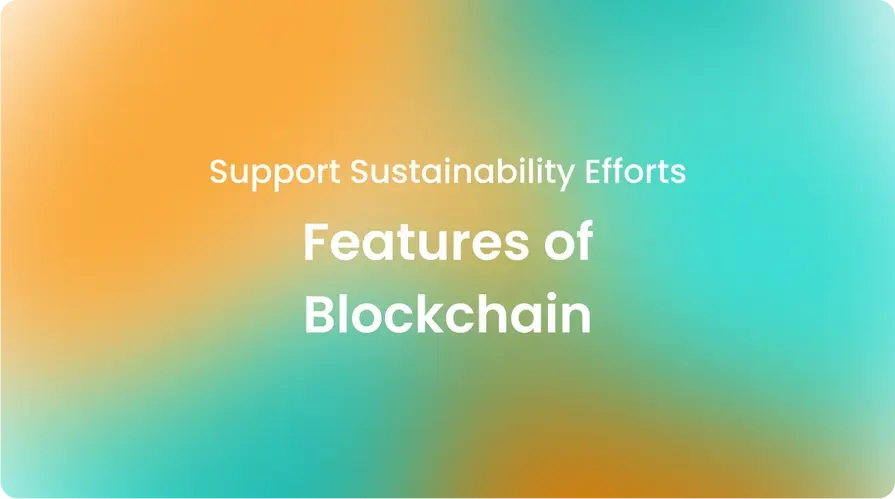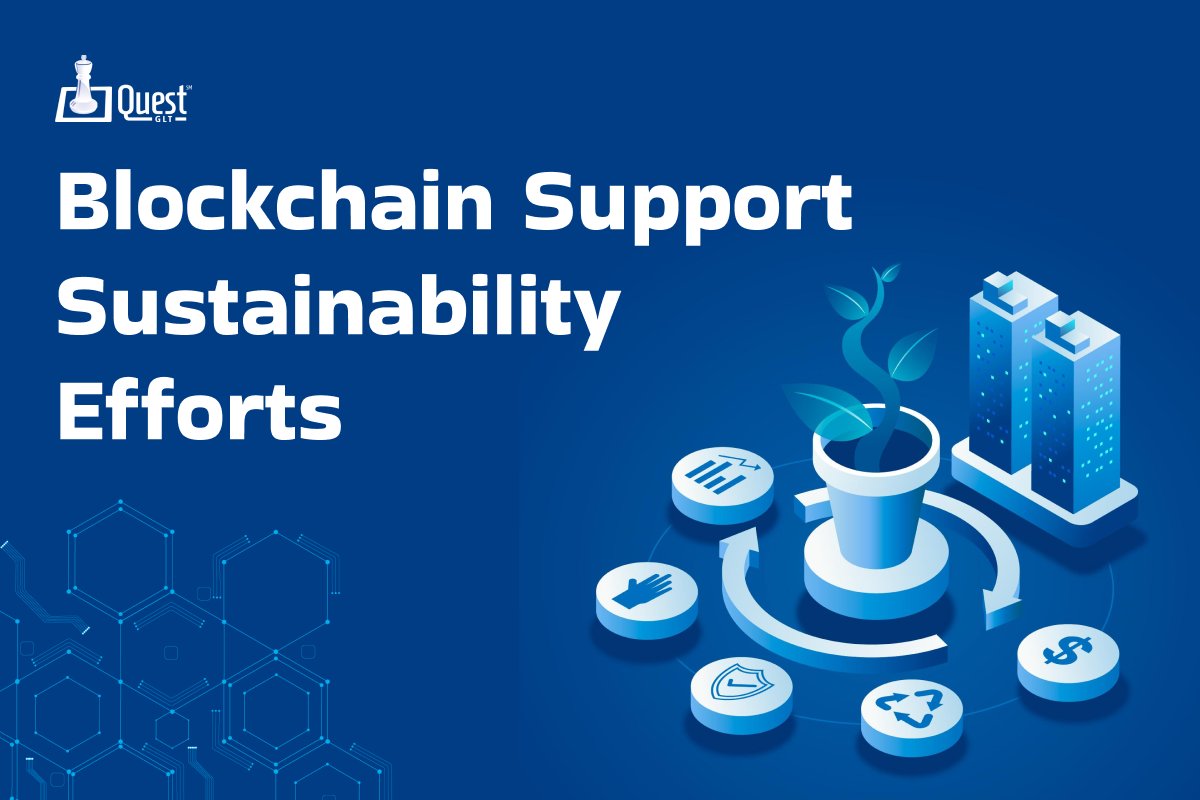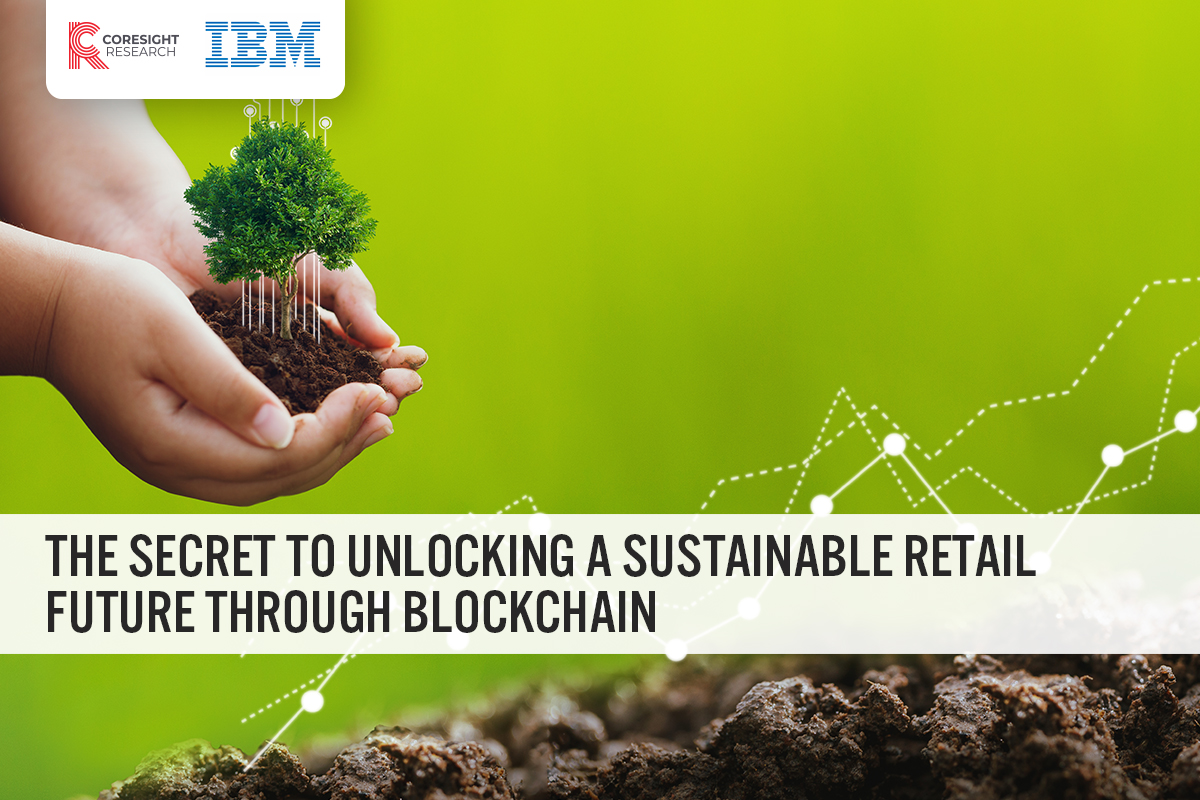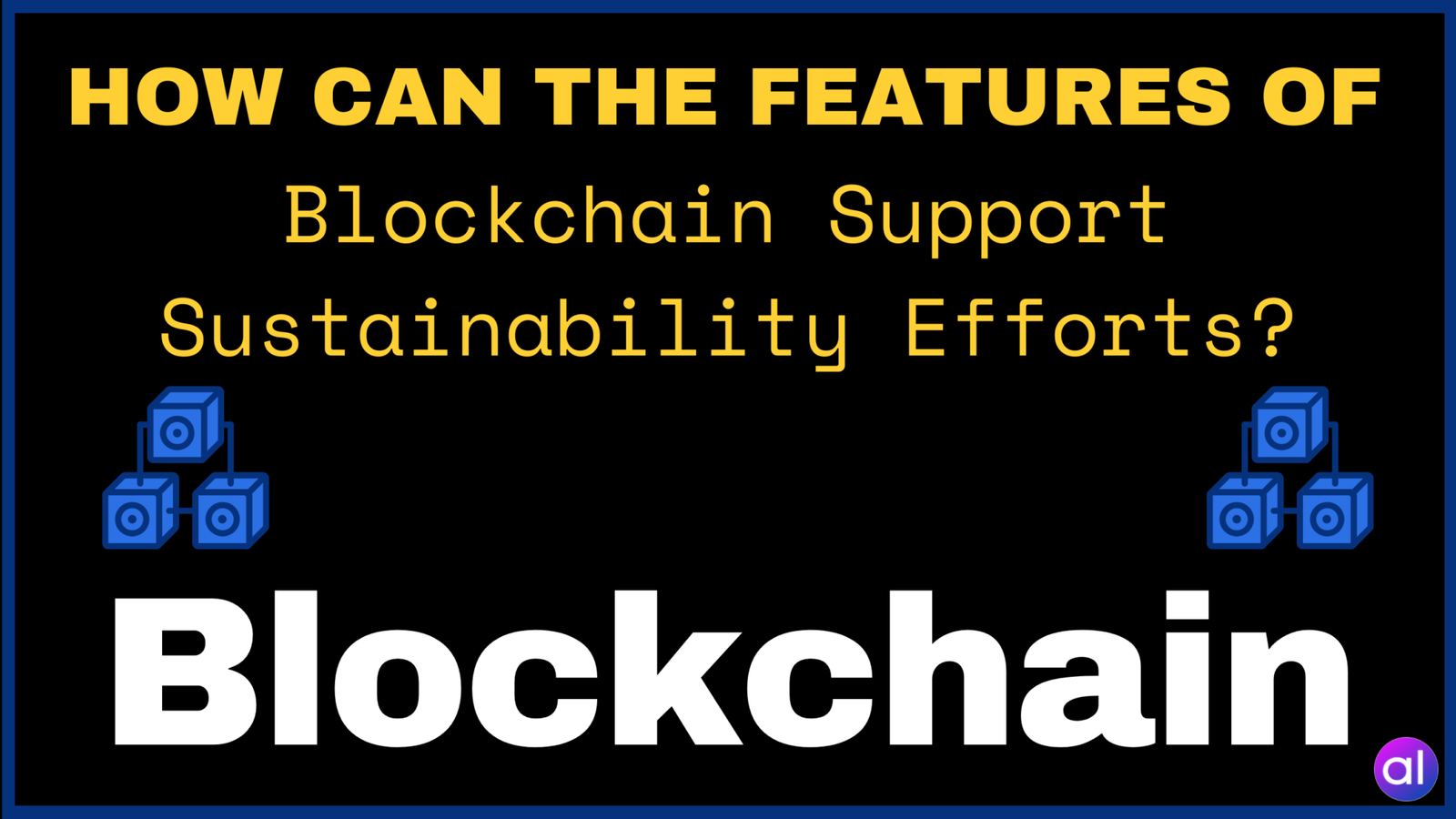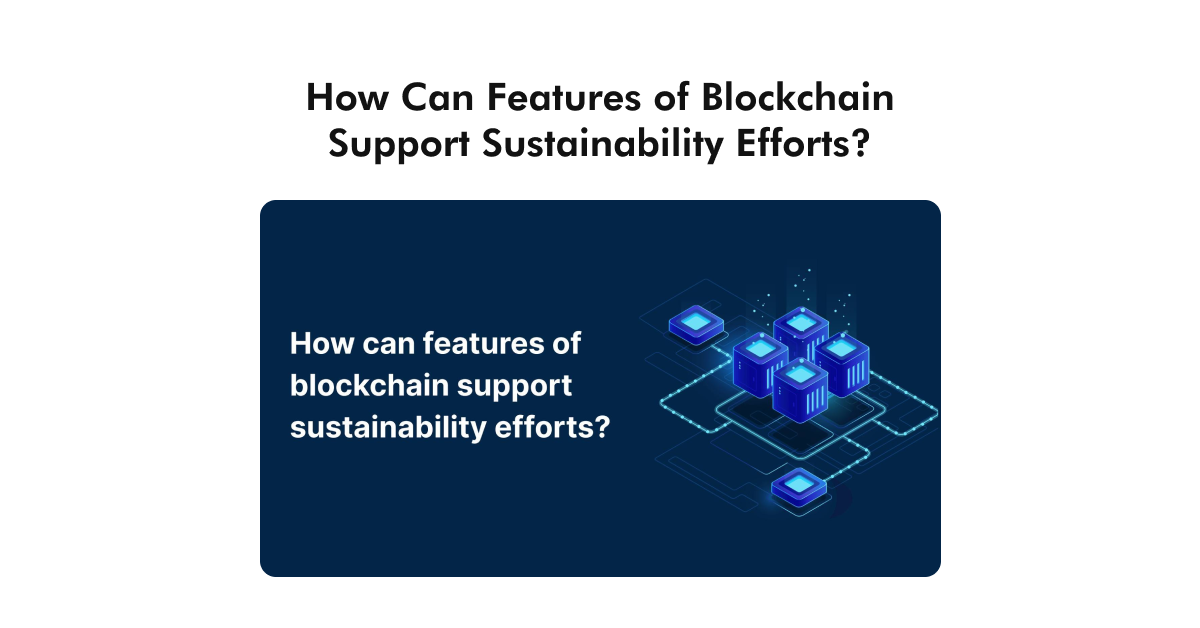How Can Features Of Blockchain Support Sustainability Efforts
.png)
The looming shadow of climate change demands urgent and innovative solutions. As governments and corporations grapple with complex environmental challenges, a surprising ally is emerging: blockchain technology. Its decentralized and transparent nature offers a powerful toolset for promoting sustainability across various sectors.
This article explores how specific features of blockchain can support sustainability efforts, moving beyond the hype surrounding cryptocurrencies to examine practical applications. We delve into real-world examples and expert opinions, providing a balanced assessment of blockchain's potential and limitations in the fight for a greener future. From supply chain traceability to carbon offsetting, blockchain's ability to foster trust and accountability is proving to be a game-changer.
Transparency and Traceability in Supply Chains
One of blockchain's most promising applications lies in creating transparent and traceable supply chains. By recording every transaction and movement of goods on a secure, immutable ledger, blockchain can combat issues like deforestation and unethical labor practices. This enables consumers and businesses alike to make informed choices, supporting sustainable products and discouraging harmful practices.
"Blockchain can help ensure that products are sourced ethically and sustainably," explains Dr. Anya Sharma, a supply chain expert at the Sustainable Business Institute. "The immutability of the ledger provides a verifiable record of a product's journey, from origin to consumer." Several companies are already leveraging blockchain for this purpose.
For example, Provenance, a UK-based company, uses blockchain to track seafood supply chains, ensuring that fish are caught legally and sustainably. Similarly, the World Wildlife Fund (WWF) has partnered with ConsenSys to trace tuna from the Pacific Ocean to consumers' plates. These initiatives empower consumers to make informed purchasing decisions and contribute to the conservation of marine ecosystems.
Enhancing Carbon Offset Markets
Carbon offsetting, a mechanism to compensate for carbon emissions, often suffers from a lack of transparency and trust. Blockchain can address these issues by creating a verifiable and secure platform for trading carbon credits. This ensures that funds are directed towards genuine emission reduction projects and prevents fraudulent activities.
The Climate Chain Coalition, a global initiative, is exploring the use of blockchain to create a more efficient and transparent carbon market. By tokenizing carbon credits on a blockchain, they can be easily tracked, traded, and verified, increasing confidence in the system. This can incentivize greater investment in renewable energy and other emission reduction initiatives.
Moreover, blockchain can streamline the verification process for carbon offset projects. Traditionally, verification requires costly and time-consuming audits. Using blockchain, data from sensors and other monitoring devices can be securely recorded and automatically verified, reducing costs and increasing efficiency.
Decentralized Renewable Energy Grids
Blockchain can facilitate the development of decentralized renewable energy grids, empowering communities to generate, consume, and trade clean energy locally. These microgrids reduce reliance on centralized fossil fuel-based power plants, promoting energy independence and reducing carbon emissions. The technology enables peer-to-peer energy trading, where individuals can buy and sell excess energy generated from solar panels or wind turbines.
Power Ledger, an Australian company, has developed a blockchain-based platform for peer-to-peer energy trading. This allows households with solar panels to sell excess energy to their neighbors, creating a more efficient and resilient energy system. Such systems reduce energy waste and lowers energy costs for consumers.
By enabling direct transactions between energy producers and consumers, blockchain also bypasses traditional utility companies, giving communities greater control over their energy supply. This can lead to increased investment in renewable energy and a more sustainable energy future. This can be extremely beneficial to developing nations in remote areas.
Challenges and Limitations
While blockchain holds immense potential for promoting sustainability, it is not a silver bullet. Several challenges and limitations must be addressed to ensure its effective implementation. The energy consumption of some blockchain networks, particularly those using Proof-of-Work consensus mechanisms, has raised concerns about their environmental impact.
However, newer blockchain technologies are adopting more energy-efficient consensus mechanisms, such as Proof-of-Stake, which significantly reduces energy consumption. Ethereum, one of the largest blockchain platforms, has successfully transitioned to Proof-of-Stake, reducing its energy consumption by over 99%. This proves that blockchain can be made much more environmentally friendly.
Furthermore, the scalability and interoperability of blockchain networks need to be improved to facilitate widespread adoption. Many different blockchain platforms exist, and they often struggle to communicate with each other. The lack of interoperability can hinder the development of integrated sustainability solutions.
Data privacy and security are also crucial considerations. When storing sensitive information on a blockchain, it is essential to implement robust security measures to prevent unauthorized access or manipulation. Balancing transparency with data protection is a key challenge.
The Future of Blockchain and Sustainability
Despite these challenges, the potential of blockchain to support sustainability efforts is undeniable. As blockchain technology matures and becomes more energy-efficient, scalable, and interoperable, its applications in the environmental sector will continue to expand. Governments, businesses, and individuals must collaborate to explore and implement blockchain-based solutions that promote a more sustainable future.
"Blockchain is a powerful tool that can help us address some of the most pressing environmental challenges of our time," concludes Dr. Sharma. "By fostering transparency, accountability, and collaboration, it can empower us to create a more sustainable world for future generations." A combination of forward-thinking technology and human collaboration is needed.
Investing in research and development, fostering collaboration between stakeholders, and establishing clear regulatory frameworks are essential steps to unlock the full potential of blockchain for sustainability. The future is ripe with the potential for blockchain to act as a key element in building a greener, more responsible, and sustainable world.





